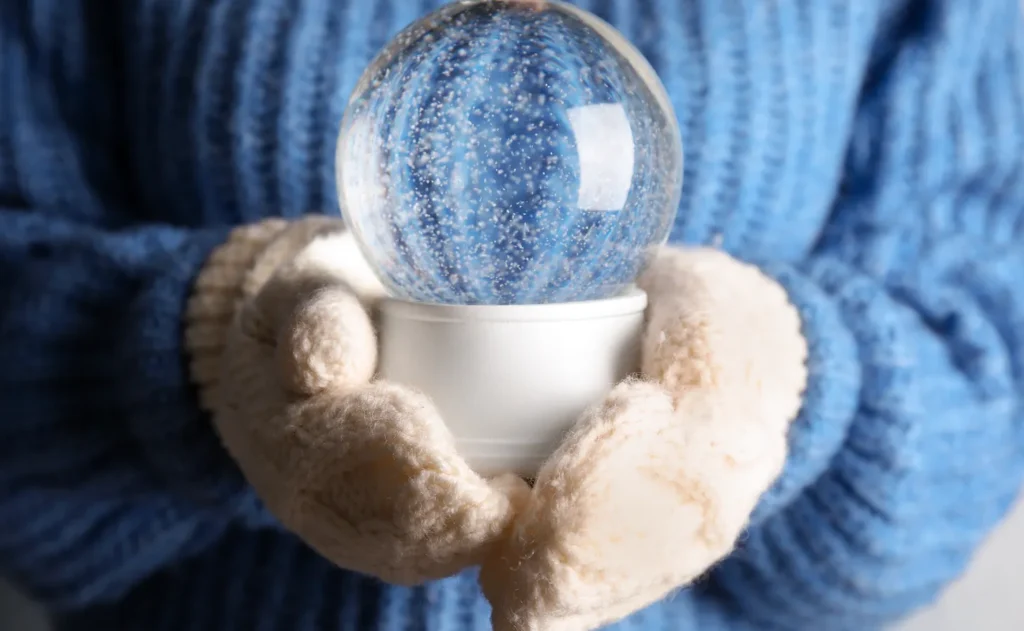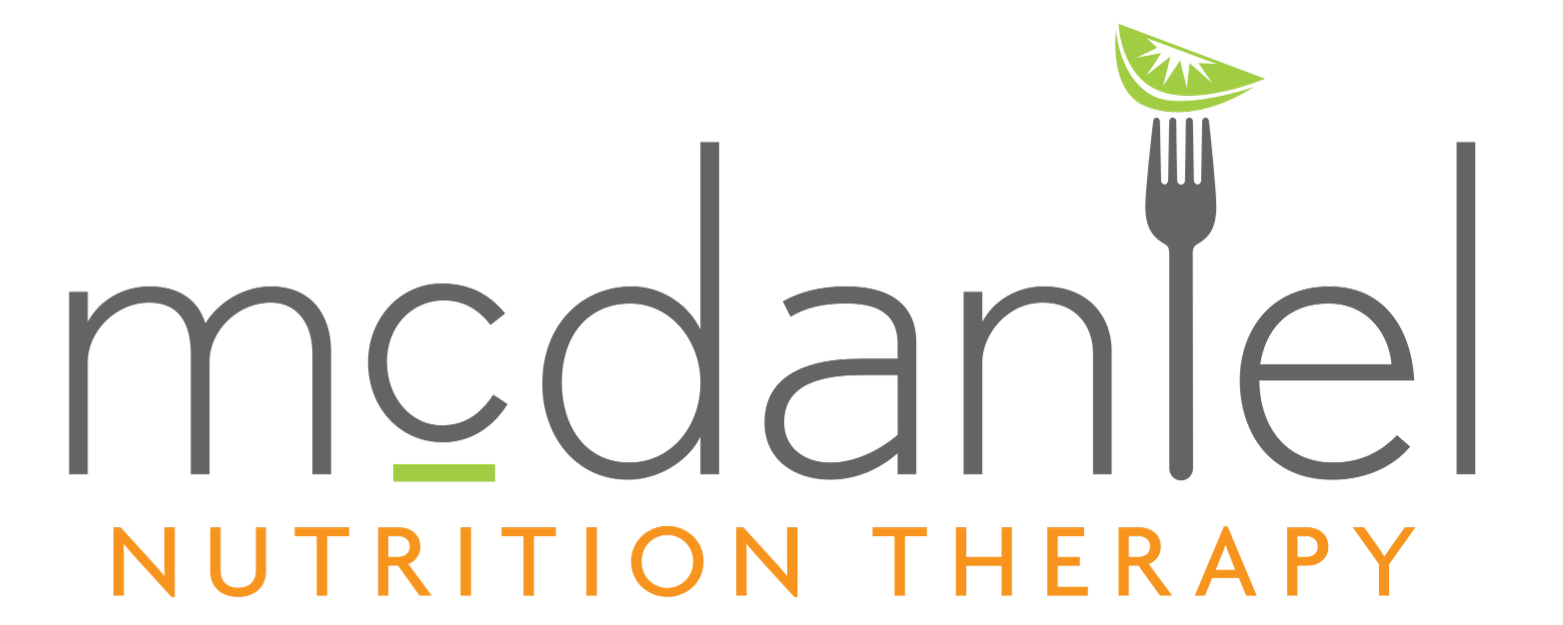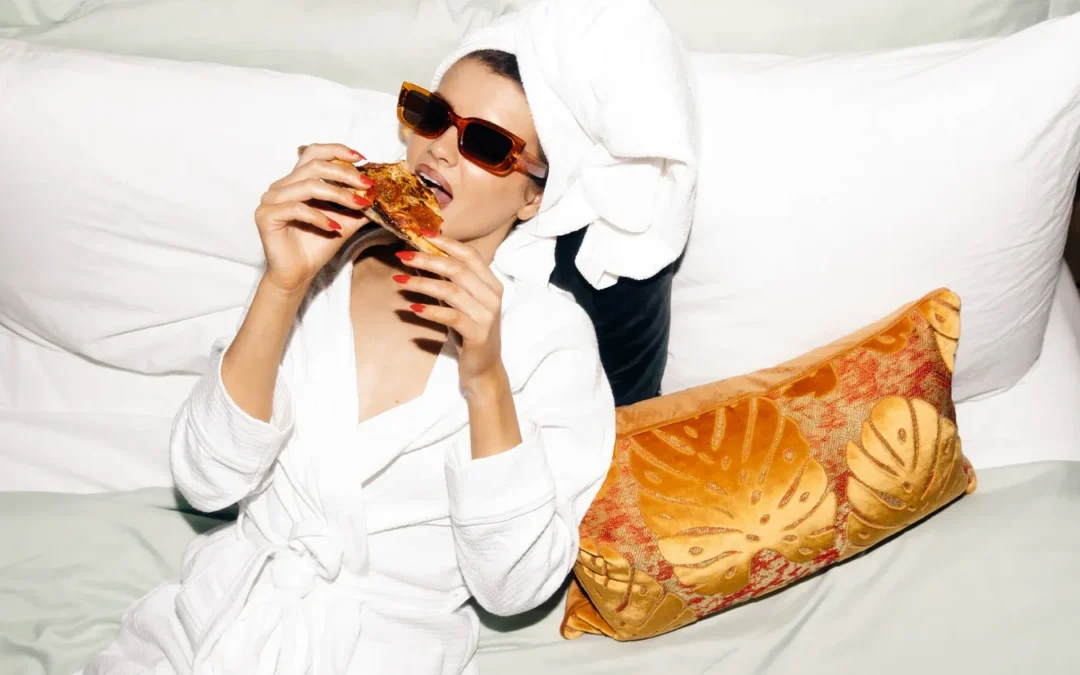The first time I remember truly “overthinking food” was when I became a parent. Even as a dietitian trained to separate fact from fear, I felt conflicted. What type of formula is best? Organic or conventional? Homemade or store-bought? And don’t get me started on the snack offerings from one of the daycares my boys attended. No matter how much I knew, I still felt unsettled by what my kids ate—or guilty about what I served them myself.
Looking back, I have A LOT of compassion for that new mom. Parenthood is hard, and when you’re shaping a child’s relationship with food, every decision can feel enormous.
I won’t pretend I’m entirely free from “overthinking” about food today, but I’ve found a more grounded perspective. Certain seasons of life make us more vulnerable —whether it’s becoming a parent, managing a health diagnosis, or teens consuming too much social media. We’re bombarded with messages about what’s “right” and “wrong” when it comes to food. Some of it matters, like food safety (don’t drink raw milk). But so much of it isn’t life-saving; it’s just stress-inducing.
Can You Trust That Nutrition Influencer?
When the FDA banned red dye, the reactions on Instagram were telling. Some accounts responded with judgment—“What took them so long?!”—while others took a more measured approach, explaining the history of food dyes and why there was no need to panic and toss every red Skittle (the best kind) out in a fury. That latter perspective felt more grounded, especially as my kids sipped slushies (slooshis?) from Wally’s, packed with every food dye imaginable, as their post-ski practice “recovery drink.” #iblamedad, but he takes them skiing all day on Saturday, so I keep my mouth shut.
This is a perfect example of how nutrition discussions spiral into fear-based messaging. With so many voices weighing in, it’s easy to feel overwhelmed and start overthinking. But just because someone has a platform doesn’t mean they’re a reliable source. So how can we figure out who to trust?
Green Flags: How to *Maybe Spot a Trustworthy Nutrition Influencer
✅ They embrace nuance. Nutrition is rarely black and white. A reliable expert acknowledges complexity, avoids fear-mongering, and helps you make informed choices rather than pushing rigid rules.
✅ They welcome questions and discussion. A credible source is open to dialogue, backs up claims with evidence, and responds to pushback with curiosity rather than defensiveness. They don’t shut down differing viewpoints; they engage with them.
✅ They’re transparent about motives. It’s not inherently bad to sell a product or service, but a trustworthy influencer prioritizes education over sales. They disclose affiliations and don’t make every piece of advice a sales pitch.
✅ They share a range of research. Instead of cherry-picking studies (feels like every health documentary) to fit a narrative, they present multiple perspectives and acknowledge when research is limited or evolving. They explain both the strengths and the limitations of the science.
✅ They admit when they don’t know something. No one has all the answers. The best experts aren’t afraid to say, “I don’t know” or “I’m still learning.” They don’t rely on sensational claims or act like they’ve “cracked the code” on nutrition.
No one has time to analyze every post – but trust you gut. If you find yourself feeling fear or saying, “really?” – you most likely are 100% right.
Learning From My Kids and My Clients
Amid all the noise, it’s easy to forget something fundamental: intuition. Kids eat when they’re hungry, stop when they’re full, and don’t overthink every bite. There’s a natural ease to their choices—something many of us lose along the way.
A client recently described what it felt like to reconnect with that ease. After years of constantly overthinking food—what to eat, when to eat, whether they were doing it “right”—they noticed a shift. “When my mind quiets down, I just know what to eat. It’s like letting a snow globe settle—suddenly, everything feels clearer.”

Overthinking food rarely leads to clarity—it just creates stress. Sometimes, the best thing we can do is trust ourselves and the safe food system we rely on today.
Food is more than just fuel. It’s pleasure, connection, and an integral part of life. The healthiest relationship with food isn’t built on research alone—it’s built on adventure, enjoyment, and trust. Our bodies already know how to eat. The real challenge isn’t figuring out what’s “right”—it’s learning to listen (again). XO – Jen

